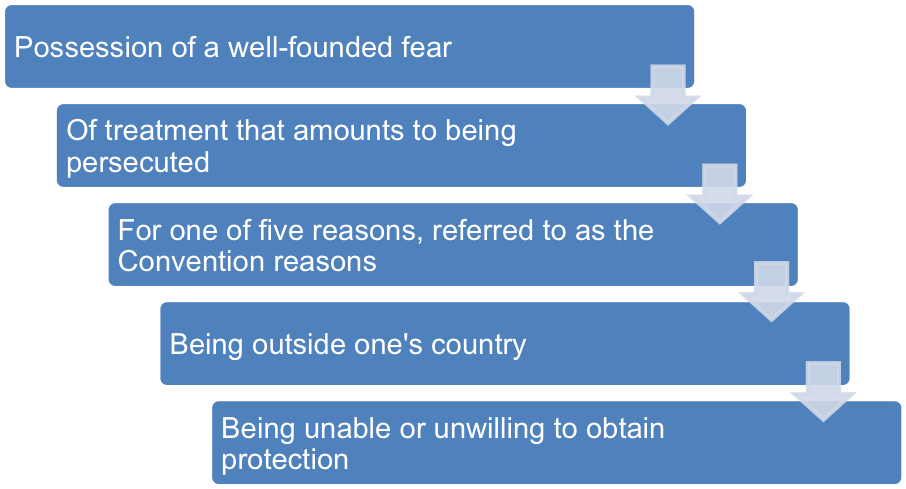- BY Colin Yeo

Is Edward Snowden a refugee?
THANKS FOR READING
Older content is locked

A great deal of time and effort goes into producing the information on Free Movement, become a member of Free Movement to get unlimited access to all articles, and much, much more
TAKE FREE MOVEMENT FURTHER
By becoming a member of Free Movement, you not only support the hard-work that goes into maintaining the website, but get access to premium features;
- Single login for personal use
- FREE downloads of Free Movement ebooks
- Access to all Free Movement blog content
- Access to all our online training materials
- Access to our busy forums
- Downloadable CPD certificates
Edward Snowden, the private contractor who exposed the industrial scale intelligence gathering methods of the United States’ National Security Agency and our own GCHQ, is seeking asylum in Russia and a host of other countries. He fears that his ‘freedom and safety’ are under threat. The US government asserts that he is a fugitive from justice, not a refugee.
Snowden is now at the mercy of high international politics. His case now transcends the law and a legal analysis is interesting on a hypothetical level but is probably largely pointless. Whatever the legal position, it seems likely that he will or will not be granted sanctuary according to political whims and convenience.
What is a refugee?
For what it is worth, Snowden almost certainly is a refugee as defined by the 1951 UN Convention Relating to the Status of Refugees, commonly referred to as the Refugee Convention. The definition (at Article 1(A)(2)) can be broken into its constituent parts:

If we go through these step by step, it is clear that he has a well founded fear of something happening to him if he goes back to the United States.
Whether that treatment would amount to persecution is a key question. Can criminal charges amount to ‘being persecuted’? If a murderer, say, escapes his home country and extradition back to his home country is sought, can he claim asylum on the basis that he will be imprisoned on return? No. Snowden has apparently broken US law, so why might his case be any different to a common criminal? In fact he still has a very strong case, as discussed below.
He does fall within the five Convention reasons (race, religion, nationality, membership of a particular social group or political opinion), that of political opinion. The US government might assert otherwise but it is crystal clear that his actions were politically motivated in exposing the truth about the system of government in the US and the extent of its control over its citizens. That falls squarely within the political opinion reason.
He is outside the US and will remain so while claiming asylum.
He certainly cannot secure the protection of his home state, the United States, which has rather rashly gone as far as withdrawing his passport and thereby arguably withdrawing consular protection.
Can criminal charges amount to ‘being persecuted’?
Yes, criminal charges can and sometimes do amount to persecution. Breaking a law then fleeing justice does not make one a refugee, but if the criminal offence or the criminal sanction do not meet internationally agreed norms as defined in the various international treaties, or if prosecution and/or punishment are discriminatory or disproportionate, then the individual is a refugee.
This has always been true under the Refugee Convention. The House of Lords examined this question in the case of Sepet and Bulbul [2003] UKHL 15, an asylum claim by two Turkish Kurds who did not want to perform military service in Turkey. Military Service was a requirement there and it was against the law to dodge the draft. International conventions do not prohibit compulsory military service and therefore the claimants could not show that their prosecution for draft evasion in Turkey would violate international norms.
The legal position within the European Union has been somewhat clarified and improved by the Common Asylum System, in particular the Qualification Directive 2004/83/EC. Article 10 of the Directive sets out a common EU understanding of what is meant by ‘acts of persecution’ and includes
“prosecution or punishment, which is disproportionate or discriminatory”
Is Snowden a refugee?
Given the appalling and seemingly vindictive treatment of Bradley Manning, admittedly a different case and one that fell within the military disciplinary jurisdiction, it should be fairly straightforward for Snowden to convince an EU asylum state or judge that he has a well founded fear of being persecuted. The UN Special Rapporteur on torture last year commented as follows on the Manning case:
The Special Rapporteur concludes that imposing seriously punitive conditions of detention on someone who has not been found guilty of any crime is a violation of his right to physical and psychological integrity as well as of his presumption of innocence.
The prospect of EU asylum is only any consolation to Snowden if he could physically reach an EU state, of course, because one usually has to be in the territory of a country before claiming asylum.
Even outside the EU, though, Snowden still has a very strong case.
However, it is highly likely that most countries would not want to be seen by the United States to be granting asylum to Snowden without a fight, so he would need to fight his case through the courts, a stressful and unpleasant experience.
Far easier to be Putin’s guest.
SHARE

